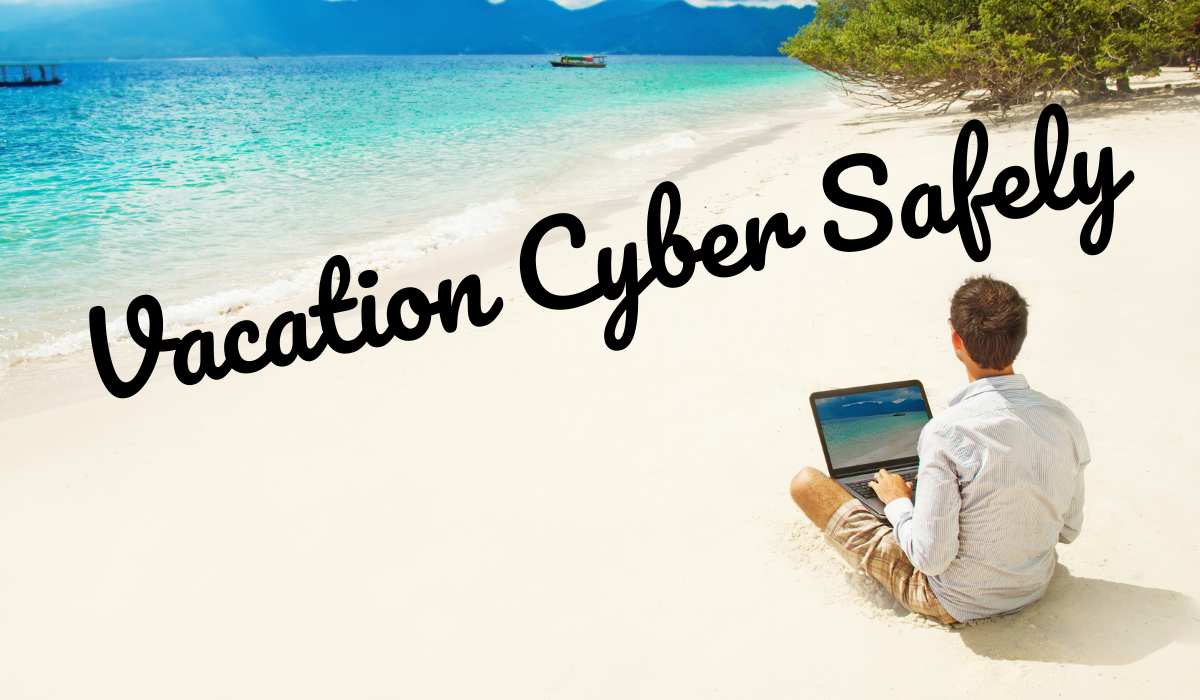Contact Us
Remote Support
Call Us at 207-608-8900

With summertime in full swing, many of us are heading out on vacations that are long overdue. Whether you’re visiting family, friends, the mountains, or the beach, be “shore” to travel with smart cyber habits that will keep you and your loved ones protected in ways that can’t be fixed with that first aid kit that you stashed in the trunk.
Working remotely became a part of life for many of us over the past year, and one of the benefits of that set up is the flexibility that it provides to travel more and work while on the road from different locations. This means that we have multiple devices that help us to get the job done from wherever we are. While it opens up many opportunities for you to see more of the world, it also opens up the door for cybercriminals to access your information easily as well.
These suggestions should be part of a strong cybersecurity posture regardless of where you’re working, but since we tend to relax more when we aren’t within the confines of office walls, they bear repeating with emphasis to anyone heading out of town.
Hackers don’t care where you are, they just care how hard it is to get to your information.
Before You Go
- These steps should be taken before you leave home and on all of the devices that are traveling with you, including the ones that your family members are taking.
- Back up your devices before leaving. This is a critical step should you need to restore or recover anything from a damaged or stolen device.
- Install all security patches and software updates before taking off. Software companies release these as they become aware of security gaps in their product, and it is essential in the war against cybercrime.
- Make sure that all of your passwords are strong and enable multi-factor authentication on any accounts that it is available for. What does that mean? When you login, you have to verify that it is you, or that it is a trusted device. Additionally, if a hacker tries to get into your account, you are notified by a second means of communication (i.e., a text with a code).
- Put a passcode, PIN, or fingerprint id on your devices.
On the Road
- Bring your own power adapter and cords to use. Malware has been found at airport kiosks, public charging stations, and even in the USB ports of hotel lamps! If you MUST use one of these options when traveling, power down your device before connecting to any public option.
- Do not use free or open Wi-fi when traveling – also be aware of any Bluetooth connections that you establish, like that rental car you authorized to use your phone! Delete any connections that you’ve established as well.
- Logging into your Netflix account in that AirBnb might not be the best idea. If it happens, be sure to delete anything you’ve accessed on devices that you don’t own.
- Device theft happens. And it can happen in seconds. Don’t leave your phone by the pool as you run to get a drink or towel, take it with your or leave it in the hotel safe. Same should be said for your laptop or tablets. Remind your kids to hand you anything that they are using if they won’t be holding it in their own two hands. And never place your laptop, phone or tablet in checked luggage.
Even if your device is protected, if it contains data and it is stolen, it may need to be reported as a potential data breach depending on industry and regulations.
Enjoy your time away from work, but remember, hackers don’t care where you are, they just care how hard it is to get to your information. Don’t make it easy for them!

